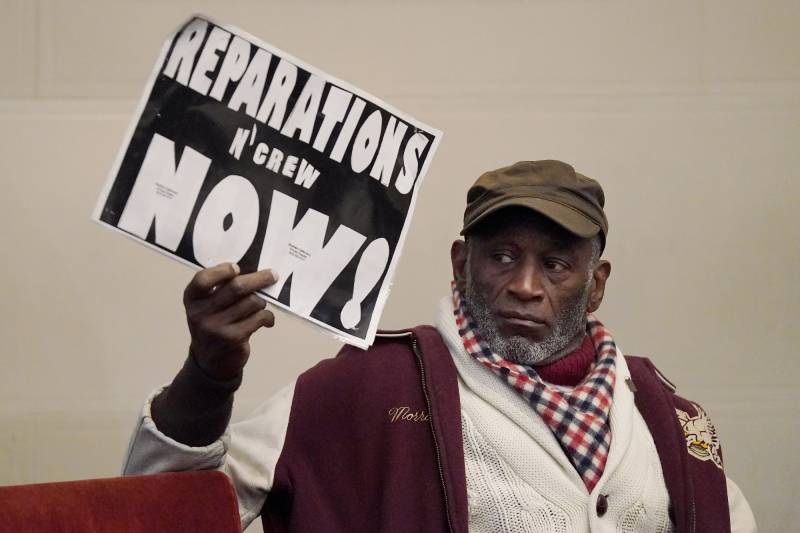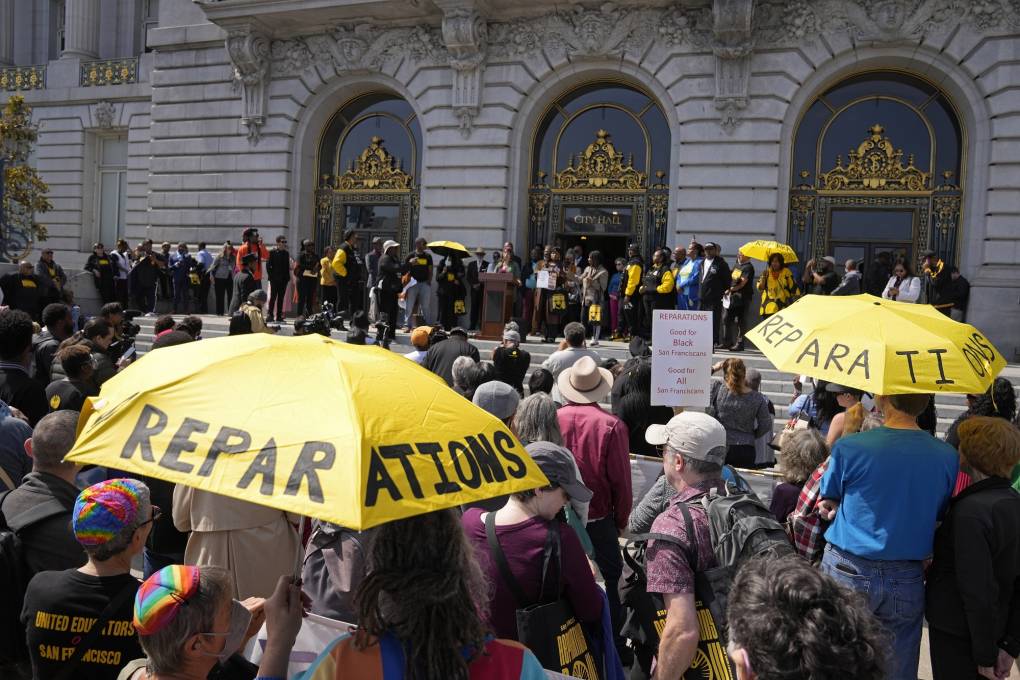Board President Nate Miley, who advises the commission along with Supervisor Elisa Márquez, previously warned that county money is in short supply. This past summer, the county managed to close a $68 million hole in its $4.6 billion annual budget by reducing spending and digging into savings.
Erika Weissinger, a UC Berkeley professor, served on the Berkeley Unified School District Reparations Task Force, which similarly had no funding for research.
She said white members of the commission, including herself, provided volunteer labor to help move the task force forward. She said, expecting Alameda County’s predominantly Black commission to do the same hits differently.
“When you have Black unpaid labor trying to figure out how to remedy Black unpaid labor, we have a problem,” Weissinger told KQED.
At Thursday’s meeting, Weissinger and Dr. Ashley Adams, co-directors of the Black Reparations Project, advised the commission to seek technical assistance from local graduate students and reparations advocacy groups, and to adjust it’s strategy to account for the lack of research funding.
The California Reparations Task Force, which was budgeted $4.7 million over two years, held a series of community listening sessions, hired a team of economists and researchers and produced a final report. The report detailed anti-Black policy throughout California’s history and made more than 100 policy recommendations, some of which were signed into law.
In contrast, the BUSD task force heard presentations from experts, conducted a community survey, and, in its final report, made three policy recommendations, including advising the district to hire a consultant to conduct a review of policies and their impact on Black students.
Gore-Mann, who is also the president and CEO of The Greenlining Institute, said she is looking for private donations to augment county funding. The commission is now sponsored by the county library system, an arrangement that doesn’t provide funding but allows the group to accept philanthropic donations.
She said the commission tried to work with students at UC Berkeley’s Goldman School of Public Policy last year, but the effort was hampered by county red tape.
At Thursday’s meeting, she asked Miley whether the commission would benefit from advocating for their cause with individual supervisors.
“I don’t think there is a lack of commitment,” Miley said. “We just have a lot coming at us.”
County officials said additional funding could be approved down the line and asked the commission to resubmit a more detailed budget request.
Frustration with the county over the budget allocation was palpable at the meeting, but Commissioner Larry McClendon tried to keep the group positive. He said the group could build awareness about the county’s reparations process by doing outreach in their personal and professional networks.
“We are in a really good position to hit the ground running if we can get some assistance,” McClendon said. “Maybe ‘cause I’m a Raiders fan, I know how to deal with losses and remain positive.”


